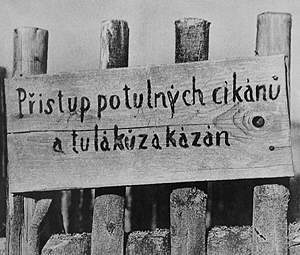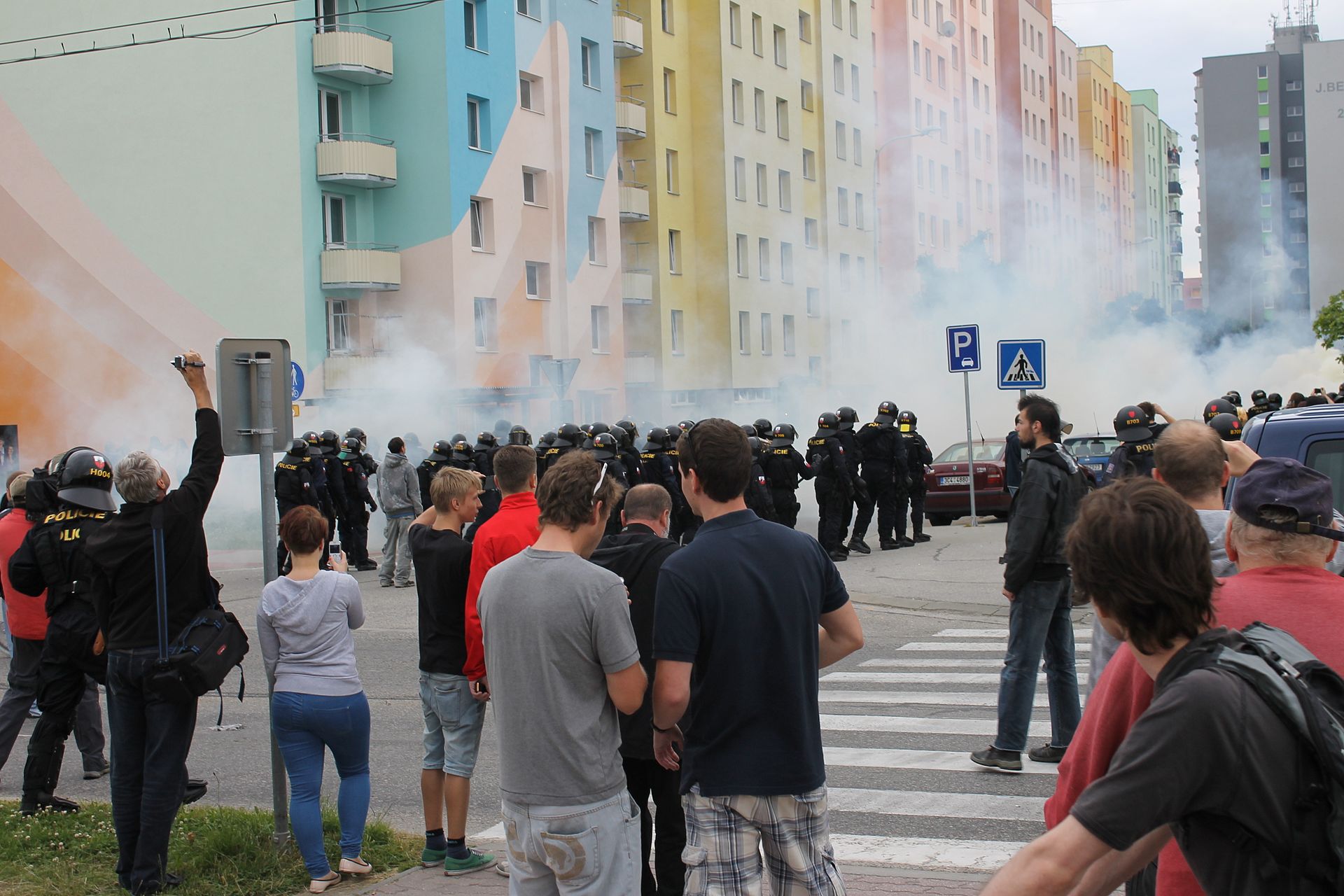Five years ago a respectable and “well educated” acquaintance brought our dirt-covered twin toddlers home from the playground.
“They’re dirty like gypsies,” the kind lady lamented.
PARTNER ARTICLE
I was worried I would burst into flames if I waited too long to respond.
When my children were out of earshot, I asked my sons’ escort why she had used a racist slur. The well-traveled woman looked utterly baffled. “It’s just something people say. My parents said it. I never thought about it,” she replied.
“How do you think a Romani child hearing you say that would feel about herself?” I asked, using the preferred adjective for the ethnic group that comprises roughly two percent of the Czech Republic’s population.

“What would her self image be? What would her mother think?” I continued. The victim of my inquisition shrugged her shoulders.
“How about a dirty Jew? Would you say that?” I queried, making her even more perplexed since she was aware I was Jewish.
“Please do not ever make negative comments about any ethnicity or nationality in front of my children. Roma children are not dirtier than my own. And also, dirt is good!” She gladly agreed and went back to being an excellent source of linguistic and emotional inspiration.
And that was that. But not really.
Because the world reckoning with racism in the wake of George Floyd’s gruesome knee-in-the-neck killing by a white policeman in Minneapolis has resulted in a lot of allyship. People are justly horrified by police brutality and are taking a deeper look at racism in their own midst. Sort of.
The racism Olympics
Often, instead of reflecting on explicit and implicit prejudices within their culture, some prefer to compete in the racism Olympics.
You can’t talk about racism in our country because LOOK at your country! We win, you lose!
And indeed, nothing strikes many Czechs as more hypocritical than when naive Americans first arrive in the Czech Republic, read one article about Roma undereducation, and start hammering away at those “racist Czechs.”
Because unlike the United States, the Czech Republic didn’t have slavery, Jim Crow segregation laws and institutionalized segregation that was only dismantled in the 1970s.
On the other hand, the wanton political incorrectness of the Czech Republic means you can meet someone with a Ph.D. and prestigious job who will openly declare his disdain for Roma because he claims they rely on state welfare to survive.

In the United States, such overt racism is rare among elites, but human rights organizations note that police brutality against Blacks is rampant. And in just one indicator of the toxic level of racism in the United States, Black children are punished in school at exponentially higher rates than their white counterparts for the same behaviors.
Forget the contest. In both countries, ignorance, prejudice, and discrimination result in fewer opportunities for a minority group. Anyone who has lived in the Czech Republic for more than a year has likely heard or read about a Romani man or woman who was boycotted by restaurant waiters, denied access to housing due to skin color or beaten for the crime of existing.
But wait, you say, how have the Roma, who came to Europe about 800 years ago from the Indian subcontinent, had fewer opportunities if there isn’t government-sanctioned racism?
Either Hitler was right, or there is a desperate need for parent education
In 2007 the European Court of Justice ruled that the Czech Republic systematically segregated Roma children into special schools for the “mildly mentally retarded.”
Seven years later, when the country had not made headway on the issue, the EU threatened sanctions against the Czech Republic. Voila! Inclusive education was born, and the special schools were done away with. The result?
As of 2019, Romani children in Czech primary schools comprise 29 percent educated with a “lower intelligence” curricula but account for only 3.7 percent of the school population. Advocacy groups point out that their segregation continues apace.
There are perhaps a few hundred Roma in universities today. But in the segregated ghettos where most Roma live thanks to 1990s town planning, most never make it to high school. That’s in a country with one of the highest levels of secondary education in the EU.

Either Hitler was right, and there are genetically inferior “racial” groups, or the Czech national, regional and local governments need to do a much better job of helping Roma get the education they deserve. There is little middle ground here.
Yes of course Roma parents are responsible for their children, but after centuries of exclusion and poor education, why is it so hard to imagine that they need extra support in getting a level playing field?
I have heard it all before, “Roma have a different culture, they don’t care about education, their behavior is anti-social. They steal, they do drugs. They destroy their homes, they don’t want to work. It’s the parents’ fault.”
Oh yes, IT IS the parents’ fault
Parents in the majority culture who don’t realize that without fundamental additional educational support to catch up, the social ills they so often call out when it comes to the Roma community will continue to impact the lives of all children in the country. (The Czech Republic’s spends less on early education per GDP than any other EU country).
Poverty in the United States plays a strong role in undermining the quality of education since schools are in large part dependent on property taxes. But the Czech Republic is a far more economically equitable society, so the country is actually better equipped to truly integrate a disadvantaged minority.
In 2019 I was discussing elementary schools with a well-off resident of Vinohrady. She wanted to make sure her child “didn’t go to a school with a bunch of Roma,” which was an obvious indicator that the school was of the lowest possible quality.
And that brings us back to the racism Olympics with the U.S. vs. the Czech Republic.
It’s a draw? Or maybe we can deduce a lesson from this parable, which I usually claim someone once told me but I think I might have made it up.
The police come to a man’s door and say, we are here because you beat your wife. His response?
“Don’t bother. My neighbor beats his wife twice as much as I do, you have the wrong man.”
Do you have an opinion you’d like to share about life or current events in the Czech Republic? Please contact editor@expats.cz.












 Reading time: 5 minutes
Reading time: 5 minutes 




























